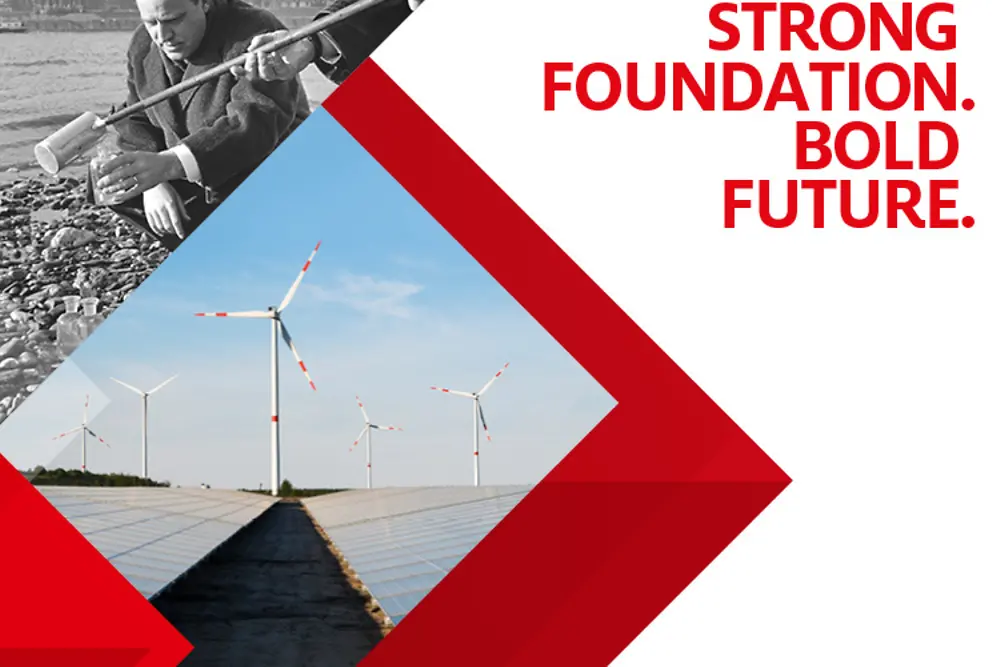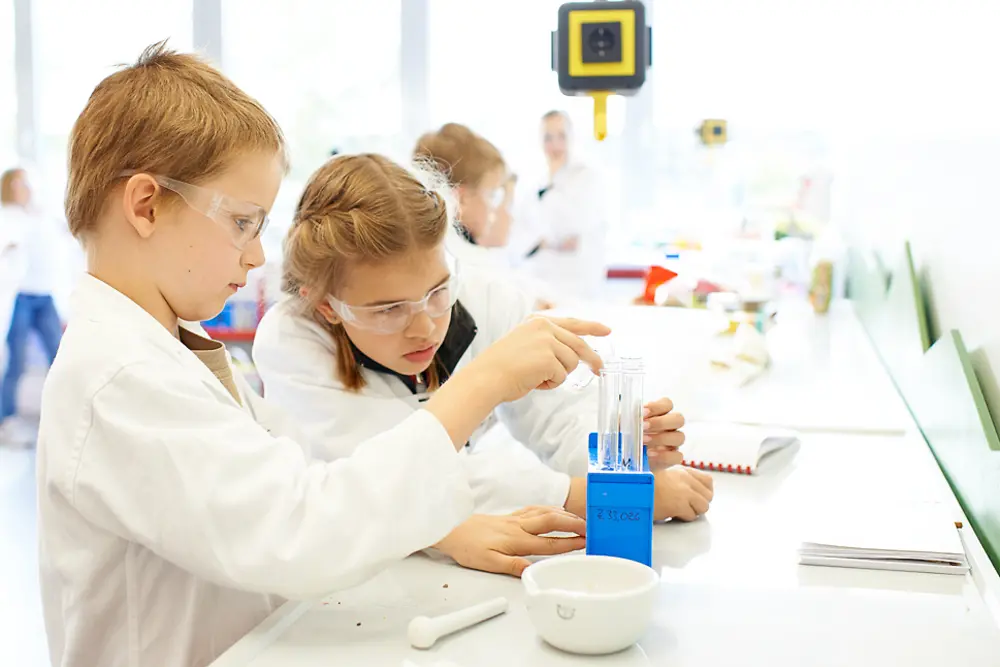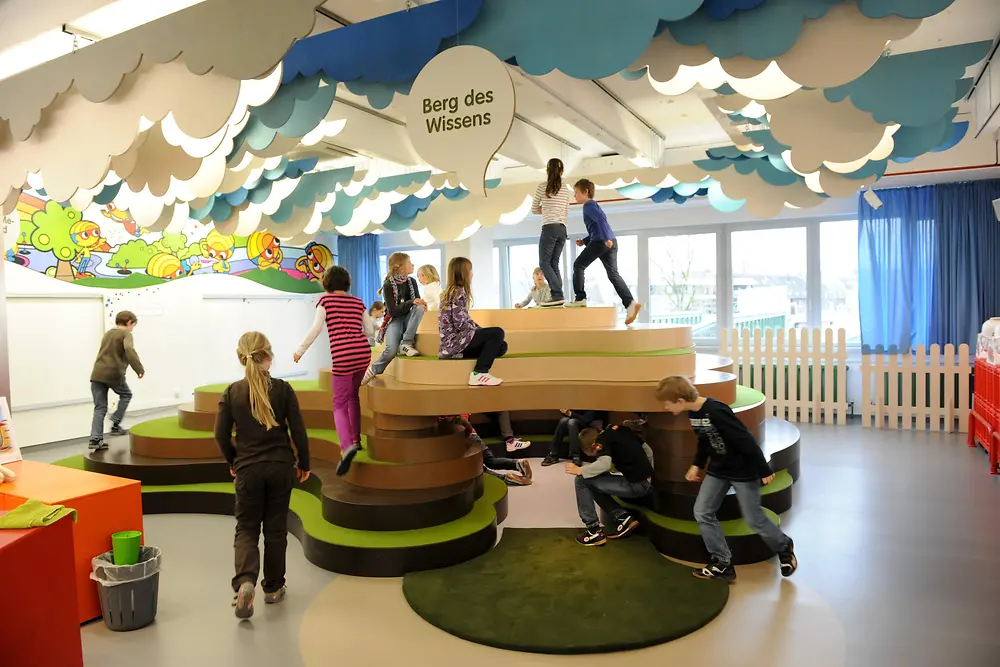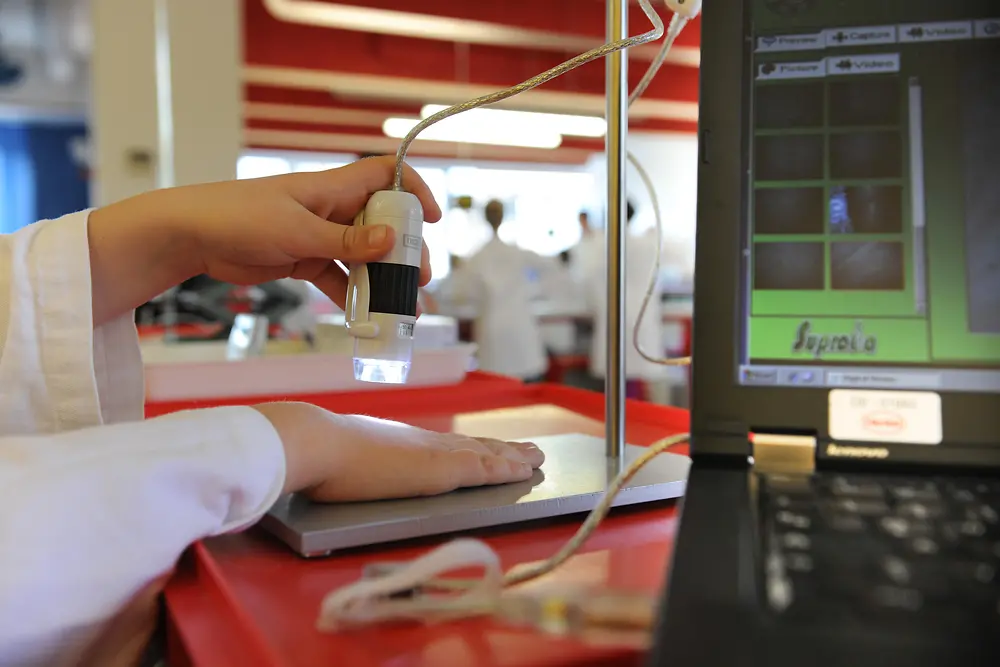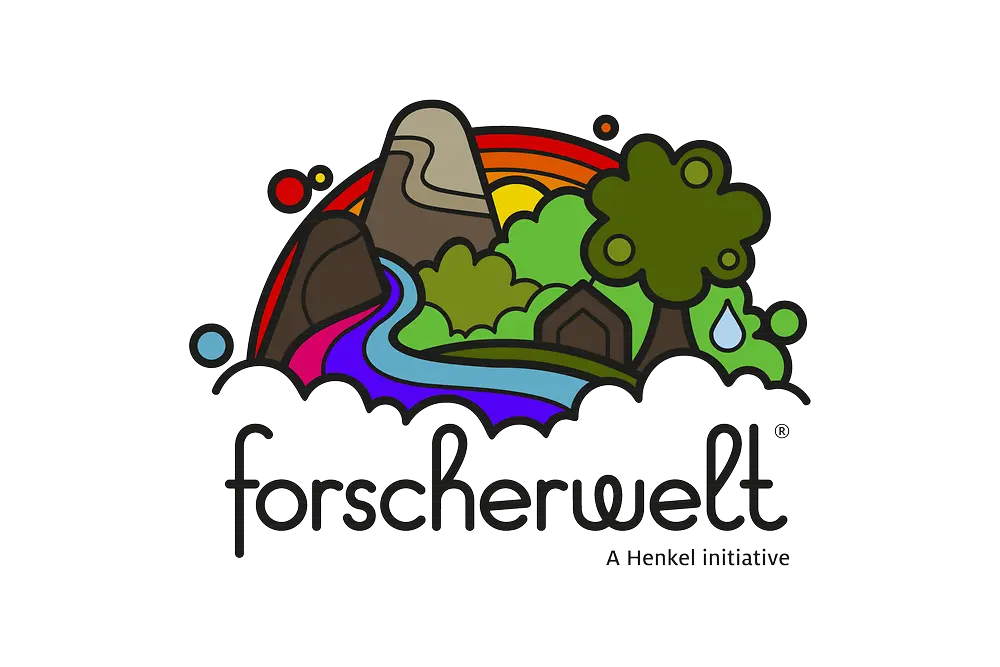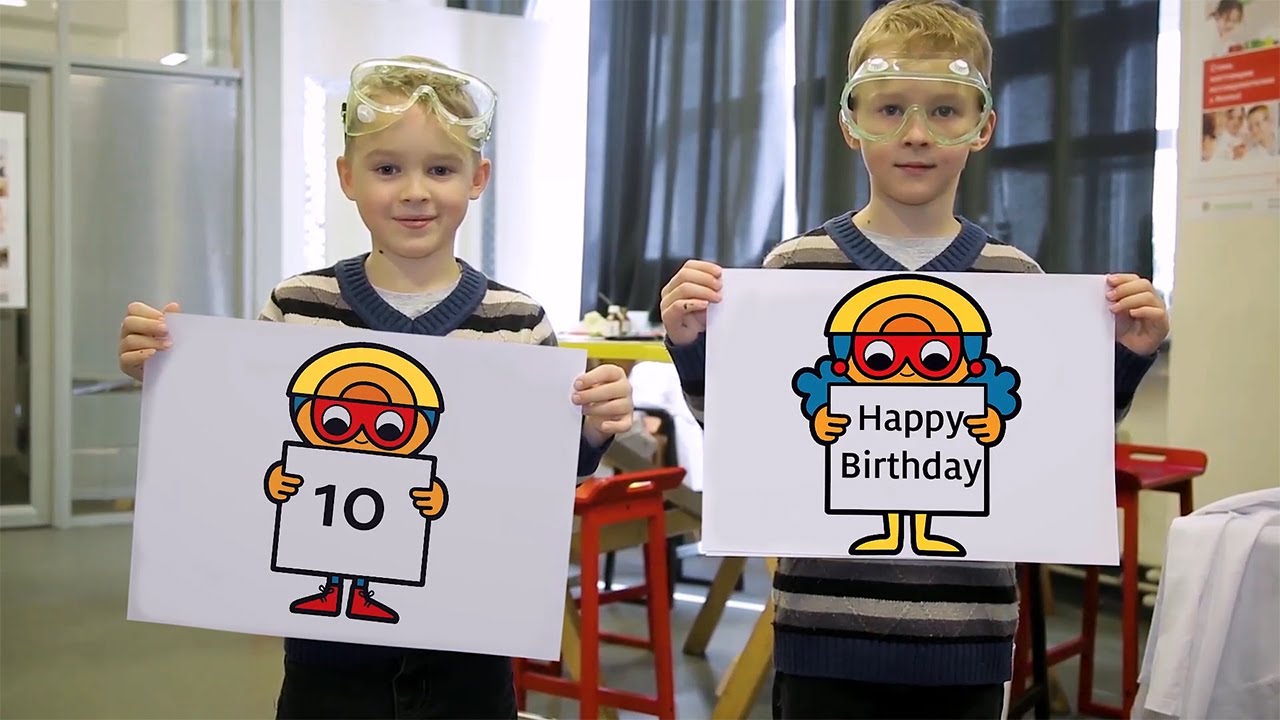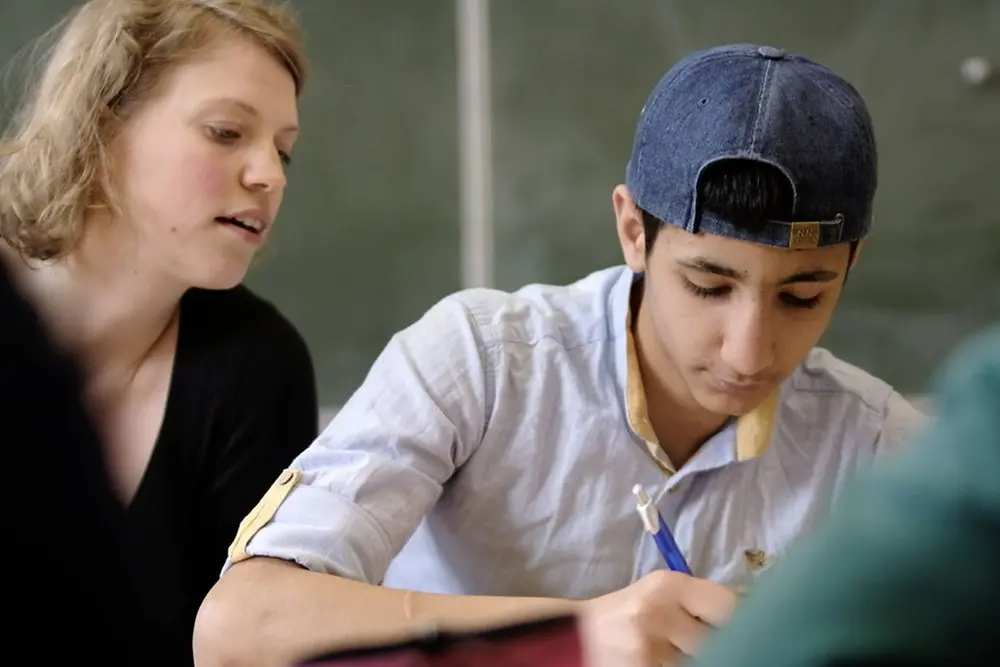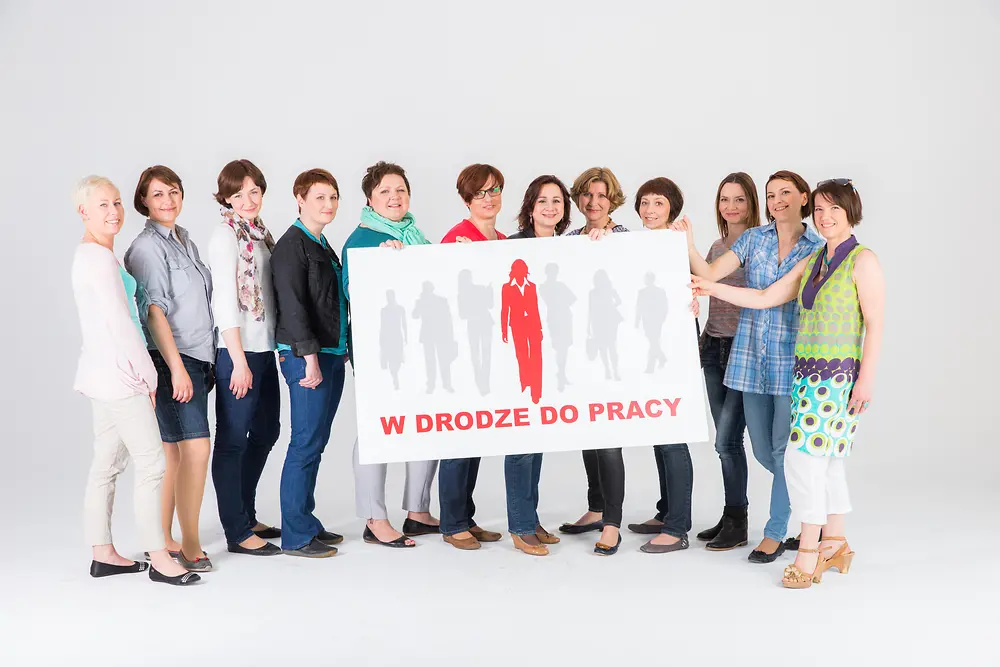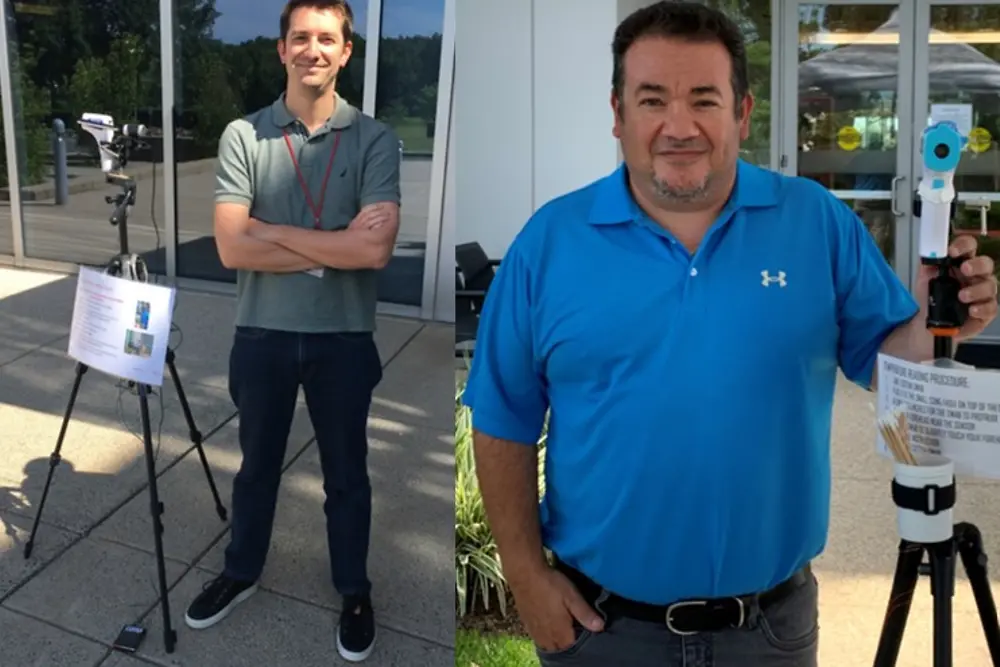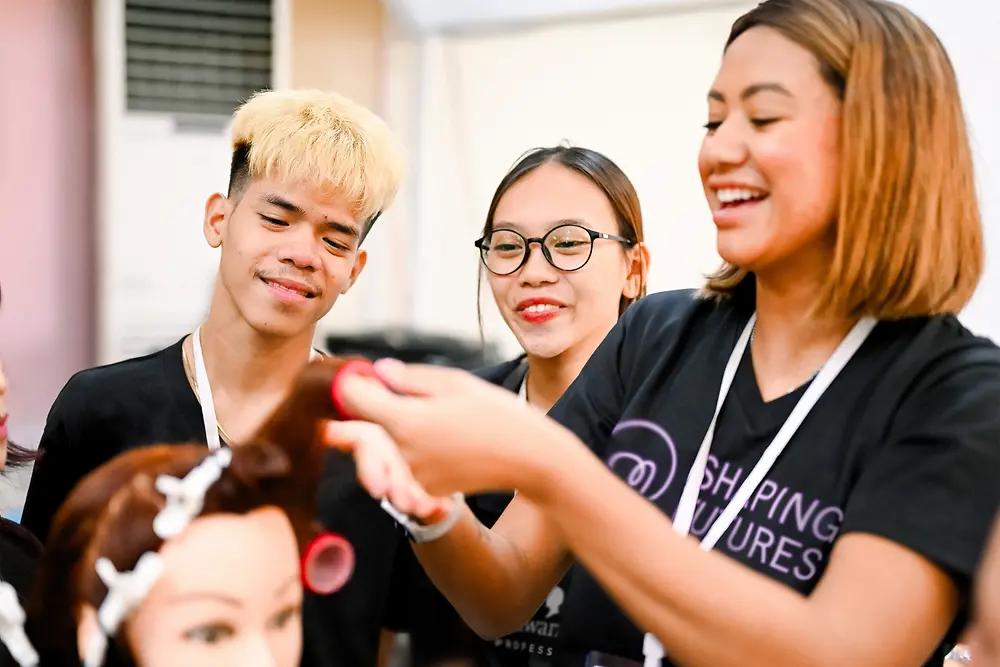Learn more about Henkel Brands & Businesses in UK & Irelands: Includes useful information about the brands, technologies and latest innovations in our business areas: Henkel Adhesive Technologies and Henkel Consumer Brands.
Research like the grown-ups do it – a journey of discovery through 10 years of Henkel’s 'Forscherwelt'
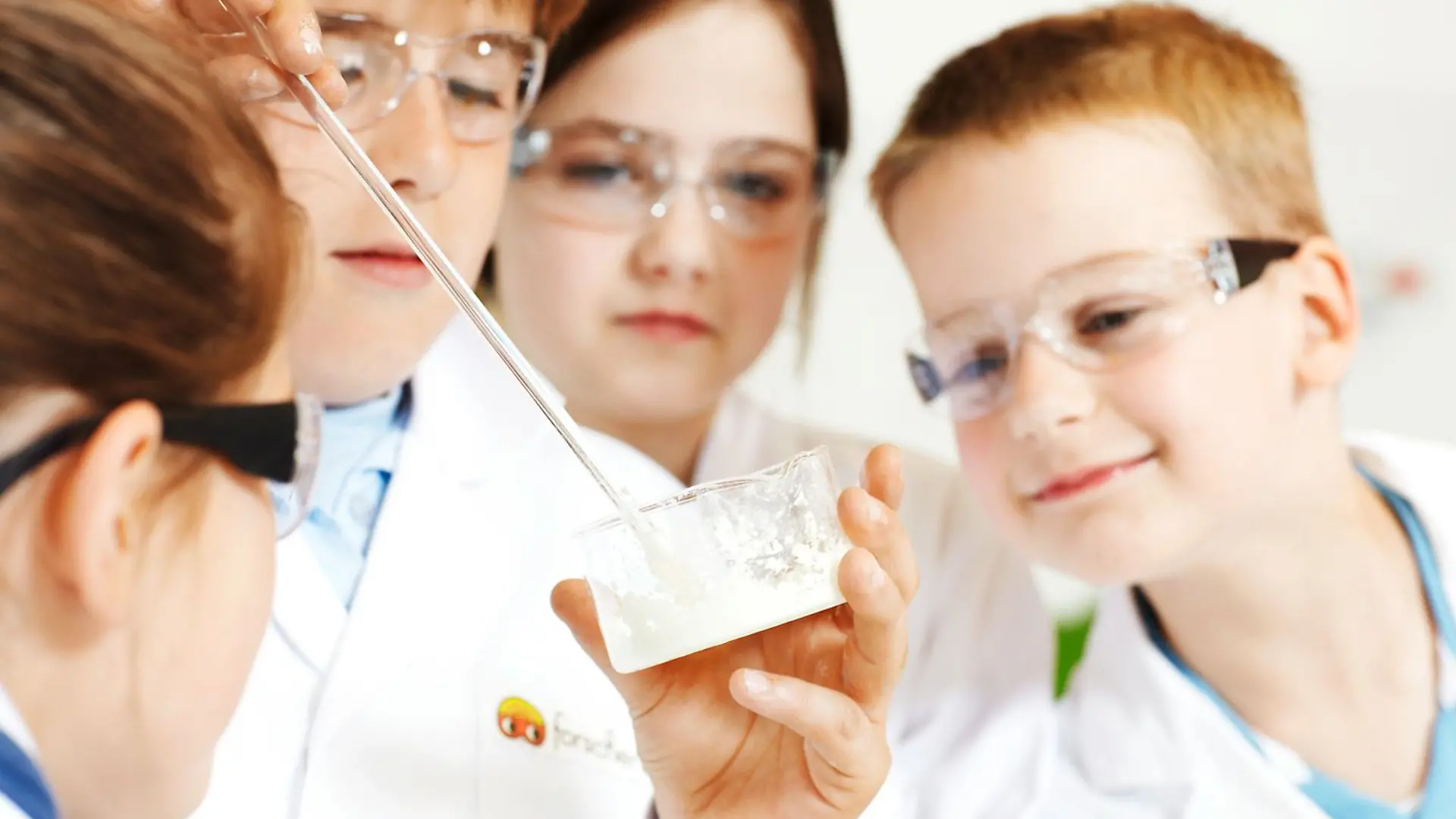
In this story you will learn:
To spark primary school children’s interest in the natural sciences and let young scientists-to-be conduct their own hands-on experiments: this is the idea that gave rise to Henkel’s 'Forscherwelt', or Researchers’ World, in 2011. The educational initiative has since been implemented around the world. Now in its 10th year, it has already given more than 62,000 children a chance to try their hand at research with experiments related to cleaning, gluing, personal hygiene and sustainability.
A decade ago, in April 2011, the first 'Forscherwelt' Easter holiday course took place on Henkel’s campus in Düsseldorf. Ole Klüppelholz, who was eight years old at the time, was among the very first children to take part. He recalls the experience vividly. “I remember feeling like things at 'Forscherwelt' were completely different to school. We were allowed to try things out for ourselves and the facilities were much more modern and exciting than what we were used to from school,” says Ole.
This is exactly what Dr. Ute Krupp, Head of Henkel’s 'Forscherwelt', hoped to achieve when she came up with the initial ideas for the initiative in late 2009: “When we first developed the concept, it was particularly important to us to get primary school kids excited about the fields of science, technology, engineering and mathematics (STEM). Elementary schools typically do not have their own science labs, so there is not much opportunity to carry out experiments in the classroom. We wanted to change that.” All the programs are module-based, so they can be taken as individual lessons or as full courses.
From Düsseldorf to the world
From 2011, the children of Henkel employees were able to come to Henkel’s facilities with their parents and put on their scientist hats. Just a year later, a cooperation was launched with primary schools in and around Düsseldorf, which is still ongoing today. The initiative has grown steadily over the last decade: In 2014, Russia and Argentina were the first countries to see Henkel’s 'Forscherwelt' implemented outside of Düsseldorf, and many other company sites followed suit. In 2020, digital 'Forscherwelt' projects were also launched in South Korea and the USA. Today, the concept has been implemented globally and regularly allows children across 13 countries to try their hand at being scientists.
The series of experiments that children get to conduct during the holiday courses are closely related to Henkel’s own research in the fields of adhesives, cleaning agents, personal hygiene products and sustainability. Employees’ children thereby get to learn about the topics their parents work on first-hand. Of course, serious research also requires suitable protective gear: “We always had to start by putting on our scientist outfits, including a lab coat and safety goggles, as soon as we entered 'Forscherwelt' and met up on the Mountain of Knowledge,” Ole remembers.

There are so many interesting things to be discovered in this world. The 'Forscherwelt' initiative is designed to encourage children to be inquisitive, to have the courage to ask questions and to find joy in searching for answers.
Dr. Simone Bagel-Trah, Chair of the Henkel Supervisory Board and Shareholders’ Committee and patron of Henkel’s 'Forscherwelt'
Fostering an explorer’s mindset through fun activities
The science experiments are not the only highlight of the experience for children: The 'Forscherwelt' space is also designed to make an impression. “I remember the Mountain of Knowledge very well. It was a meeting point and a place to talk about the results of our experiments,” says Ole. Still today, the Mountain of Knowledge is one of the key features of the 'Forscherwelt' in Düsseldorf, and its spatial concept has won three design awards. The colorful and welcoming room is located in the training center on the grounds of Henkel’s production site, inviting children to engage in playful learning. “The fact that it has continued working its magic for a decade is evident from the enthusiasm I see in the children time and time again,” Ute reports. Even ten years on, the impression made by Henkel’s 'Forscherwelt' has lasted as Ole, one of its first alumni, is preparing to pass his final high school exams with scientific majors in maths and biology.

Learning to carefully observe and log experimental setups and their results helped me in high school science classes.
Ole Klüppelholz, 'Forscherwelt' alumni
Three questions for… Ute Krupp
Dr. Ute Krupp is Manager of educational projects and has been with Henkel since 1999. She was involved in the 'Forscherwelt' initiative from the very beginning and has played a key role in its development.
How did the idea for Henkel’s 'Forscherwelt' come about?
Since its early days, Henkel has always been conscious of its social and societal responsibility and placed special emphasis on education. When the 'Forscherwelt' concept was born in 2010, it was particularly important to us to reach children at a young age. During their primary school years, they are naturally open to and easily excited by science – yet there were barely any science-based programs available to them in the Düsseldorf area at the time. Elementary schools typically do not have their own science labs, either, so there is not much opportunity to carry out experiments in the classroom. Henkel’s 'Forscherwelt' filled this gap.
What do you personally take home from the 'Forscherwelt' courses?
The most fulfilling moments are those when you see children suddenly understand the way something works and gain a scientific insight from an experimental observation. The intense communication and interaction with the children is very enriching. They show their excitement, their curiosity and their gratitude quite openly.
How will Henkel’s 'Forscherwelt' evolve in the future?
We want the initiative to continue growing internationally. I see a need for it almost everywhere, along with the desire to foster interactive, exploratory ways of learning and teaching. Digital offers will also play an increasingly important role going forward, and we have invested in them, among other things, by relaunching our website. Of course, these digital modules cannot replace the hands-on version of the experience.

